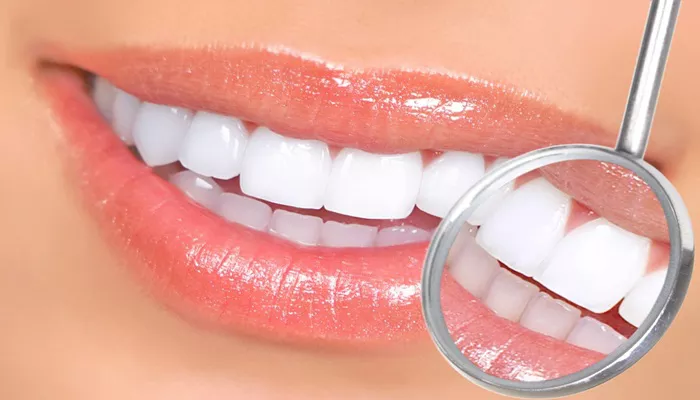Teeth whitening is a popular cosmetic dental procedure aimed at achieving a brighter, whiter smile. Among various methods available, activated organic carbon—often referred to as activated charcoal—has gained significant attention for its potential to enhance dental aesthetics. This article provides a detailed examination of how activated organic carbon works for teeth whitening, its benefits, potential risks, and practical guidance on its use.
What Is Activated Organic Carbon
Activated organic carbon, or activated charcoal, is a form of carbon that has been treated to have a porous texture. This increased surface area enhances its ability to adsorb substances. Unlike absorption, which involves a substance being taken into another, adsorption refers to the adhesion of molecules to a surface. This property makes activated charcoal effective in binding and removing impurities from various surfaces, including teeth.
The Science Behind Activated Charcoal
Activated charcoal is produced by heating carbon-rich materials, such as wood or coconut shells, to very high temperatures.
This process creates a network of tiny pores that trap particles and toxins. When applied to teeth, activated charcoal binds to surface stains and bacteria, potentially leading to a whiter appearance. This process can be compared to how a sponge soaks up liquid—it absorbs and holds onto particles rather than just cleaning the surface.
Benefits of Using Activated Organic Carbon for Teeth Whitening
1. Natural Whitening Agent
Activated charcoal is a natural product, making it an appealing choice for those who prefer organic alternatives to chemical teeth whitening products. It is free from artificial additives and harsh chemicals, which can be found in some commercial whitening treatments.
2. Absorption of Stains
The porous nature of activated charcoal allows it to bind with substances that cause stains on teeth, such as coffee, tea, and tobacco. By trapping these particles, activated charcoal can help reduce the appearance of discoloration.
3. Removal of Bacteria and Plaque
In addition to whitening, activated charcoal can aid in oral hygiene. It has the ability to adsorb bacteria and toxins in the mouth, which can contribute to plaque buildup. Reducing plaque can help prevent further staining and maintain overall dental health.
How to Use Activated Organic Carbon for Teeth Whitening
1. Choose the Right Product
Activated charcoal for teeth whitening comes in various forms, including powders, toothpaste, and gels. When selecting a product, ensure it is specifically designed for dental use. Some activated charcoal powders are intended for general use and may be too abrasive for teeth.
Types of Activated Charcoal Products
Powder: Typically used by dipping a toothbrush into the powder and brushing.
Toothpaste: Pre-mixed with other ingredients to offer a more convenient application.
Gel: Often used in combination with custom applicators or trays.
see also: How to Make Teeth Whitening Paste: A Step-by-Step Guide
2. Prepare for Application
If using powdered activated charcoal, you will need a clean, dry toothbrush. Wet your toothbrush slightly before dipping it into the charcoal powder. This helps the powder adhere to the bristles.
3. Brushing Technique
Apply the Charcoal: Gently dip the toothbrush into the activated charcoal powder. Tap off excess powder to avoid a mess.
Brush Your Teeth: Gently brush your teeth using small, circular motions. Avoid brushing too hard, as the abrasive nature of the powder could damage your enamel or gums.
Duration: Brush for about 2 minutes. Avoid brushing for longer periods, as excessive use can lead to enamel erosion.
4. Rinse Thoroughly
After brushing, rinse your mouth thoroughly with water. Ensure that all charcoal residue is completely washed away. It is advisable to rinse with water several times to remove any lingering particles.
5. Follow-Up Oral Care
After using activated charcoal, it’s crucial to follow up with your regular oral hygiene routine. Use fluoride toothpaste to help strengthen your enamel and ensure comprehensive oral health. Avoid using activated charcoal excessively; 1-2 times a week is generally sufficient.
Safety Considerations
1. Abrasiveness
Activated charcoal can be abrasive. Overuse or aggressive brushing with charcoal powder may wear down tooth enamel. It’s important to use activated charcoal sparingly and to follow proper brushing techniques.
2. Enamel Erosion
Enamel erosion is a concern with any abrasive substance. Ensure that you do not use activated charcoal too frequently.
Monitor your teeth and gums for any signs of sensitivity or damage.
3. Staining of Dental Work
Activated charcoal can potentially stain dental work, such as fillings, crowns, and veneers. If you have significant dental work, consult your dentist before using activated charcoal for whitening.
4. Oral Health Concerns
While activated charcoal can help with surface stains and plaque, it does not replace regular dental care. Ensure you maintain regular check-ups and cleanings with your dentist.
Comparing Activated Charcoal to Other Whitening Methods
1. Professional Whitening
Professional whitening treatments administered by a dentist are generally more effective and faster than activated charcoal.
They use stronger agents and advanced techniques to achieve significant results. However, these treatments can be more expensive.
2. Over-the-Counter Whitening Products
Many over-the-counter whitening products, such as strips and gels, contain bleaching agents like hydrogen peroxide. These products may offer quicker results compared to activated charcoal but can cause sensitivity or irritation in some individuals.
3. Natural Remedies
Other natural remedies, such as baking soda and lemon juice, are sometimes used for teeth whitening. However, these methods can be highly abrasive or acidic, leading to potential damage to enamel if used improperly.
Conclusion
Activated organic carbon, or activated charcoal, offers a natural alternative for teeth whitening. Its ability to adsorb stains and bacteria makes it a popular choice for individuals seeking a less chemical-dependent option. However, it is essential to use activated charcoal with caution due to its abrasive nature and potential risks. By following proper application techniques and using the product in moderation, activated charcoal can be a valuable addition to your dental care routine.

